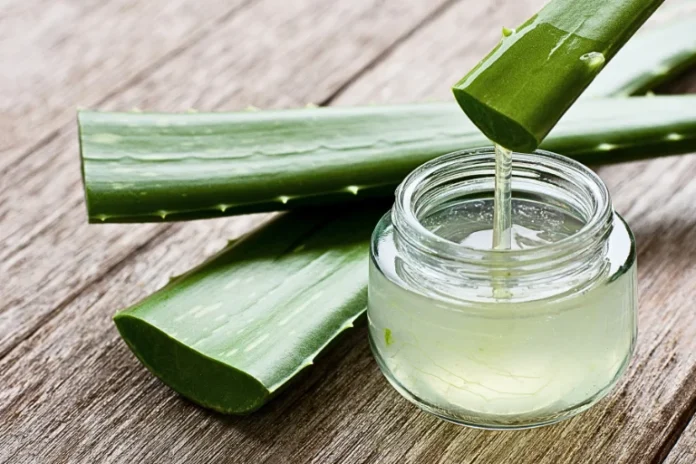Aloe Vera: A Complete Guide to Health Benefits, Uses, and Side Effects
Aloe vera, often referred to as the “plant of immortality,” has been used for centuries for its healing properties. Found in many homes as a potted plant, aloe vera is a succulent that offers numerous health benefits, making it a favorite in both traditional and modern medicine. This comprehensive guide will explore the health benefits, common uses, and potential side effects of aloe vera.
What is Aloe Vera?
Aloe vera is a short-stemmed plant belonging to the Liliaceae family. It contains thick, fleshy leaves filled with a clear, gel-like substance that has powerful therapeutic properties. Native to North Africa, Southern Europe, and the Canary Islands, aloe vera thrives in tropical climates worldwide.
The gel inside the leaves is rich in vitamins, enzymes, minerals, amino acids, and antioxidants, making it a valuable ingredient in skin care, health products, and beverages.
Nutritional Profile of Aloe Vera
Aloe vera is packed with essential nutrients that contribute to its medicinal properties:
- Vitamins: A, C, E, B1, B2, B3, B6, and B12
- Minerals: Calcium, magnesium, zinc, chromium, selenium, sodium, iron, potassium, copper, manganese
- Enzymes: Amylase, lipase, cellulase, and others that aid digestion
- Amino acids: Provides 20 of the 22 essential amino acids needed by the human body
- Polysaccharides: Boost immune function and help with cell regeneration
Health Benefits of Aloe Vera
1. Supports Digestive Health
Aloe vera juice can soothe the digestive tract, relieve constipation, and help with symptoms of irritable bowel syndrome (IBS). Its natural enzymes support better digestion.
2. Boosts Immune System
Thanks to its antioxidant content, aloe vera helps strengthen the immune system by fighting off free radicals and reducing inflammation.
3. Improves Skin Health
Aloe vera is a common remedy for skin conditions like acne, psoriasis, and eczema. Its cooling properties help soothe sunburn, hydrate dry skin, and promote wound healing.
4. Promotes Hair Health
Aloe vera can reduce dandruff, condition the scalp, and encourage healthy hair growth by improving blood circulation and moisturizing the hair shaft.
5. Regulates Blood Sugar
Some studies suggest that aloe vera juice may help lower blood sugar levels in people with type 2 diabetes. However, medical supervision is essential.
6. Detoxification and Hydration
Aloe vera juice helps flush out toxins and supports liver function. It also contains water and electrolytes that promote hydration.
7. Anti-inflammatory Properties
Aloe vera contains compounds like salicylic acid and bradykinase, which help reduce inflammation and pain in the body.
8. Oral Health Benefits
Using aloe vera in mouthwash or toothpaste can reduce plaque buildup, heal mouth ulcers, and relieve gum inflammation.
Common Uses of Aloe Vera
1. Topical Gel
Applied directly to the skin for sunburn, cuts, insect bites, and rashes.
2. Aloe Vera Juice
Consumed for digestive health, detoxification, and hydration. Typically diluted with water or other juices.
3. Aloe in Cosmetics
Used in moisturizers, sunscreens, and anti-aging products due to its skin-rejuvenating properties.
4. Hair Masks and Conditioners
Added to shampoos or used as a mask to treat dandruff and promote shiny, strong hair.
5. Dietary Supplements
Available in capsule or liquid form for internal use to support immune and digestive health.
6. Homemade Remedies
Blended into DIY face masks, scrubs, and toners for natural skincare routines.
Side Effects and Precautions
Despite its many benefits, aloe vera should be used with caution:
1. Allergic Reactions
Some individuals may experience skin irritation or allergic reactions when using aloe topically.
2. Laxative Effect
Aloe latex (the yellow sap under the leaf skin) has strong laxative properties and should not be consumed as it may cause cramping and dehydration.
3. Lowered Blood Sugar
People on diabetes medications should consult a doctor before consuming aloe vera as it may cause hypoglycemia.
4. Pregnancy and Breastfeeding
Internal use is not recommended during pregnancy or breastfeeding due to possible uterine contractions and risk to the baby.
5. Drug Interactions
May interact with medications such as diuretics, anticoagulants, and diabetes drugs.
How to Use Aloe Vera Safely
- Topically: Always do a patch test before applying to larger skin areas.
- Internally: Use only food-grade aloe vera gel or juice. Follow dosing instructions.
- Avoid Aloe Latex: Never consume the yellow sap unless under professional supervision.
- Consult a Doctor: Especially if you have underlying health conditions or are on medication.
Conclusion
Aloe vera is a versatile, powerful natural remedy with a wide range of health benefits. From soothing skin irritation to supporting digestion and boosting immunity, this plant has earned its reputation in natural health and beauty. However, like all supplements, it should be used responsibly and with awareness of its potential side effects. By integrating aloe vera safely into your routine, you can enjoy its healing power in both internal and external applications.

